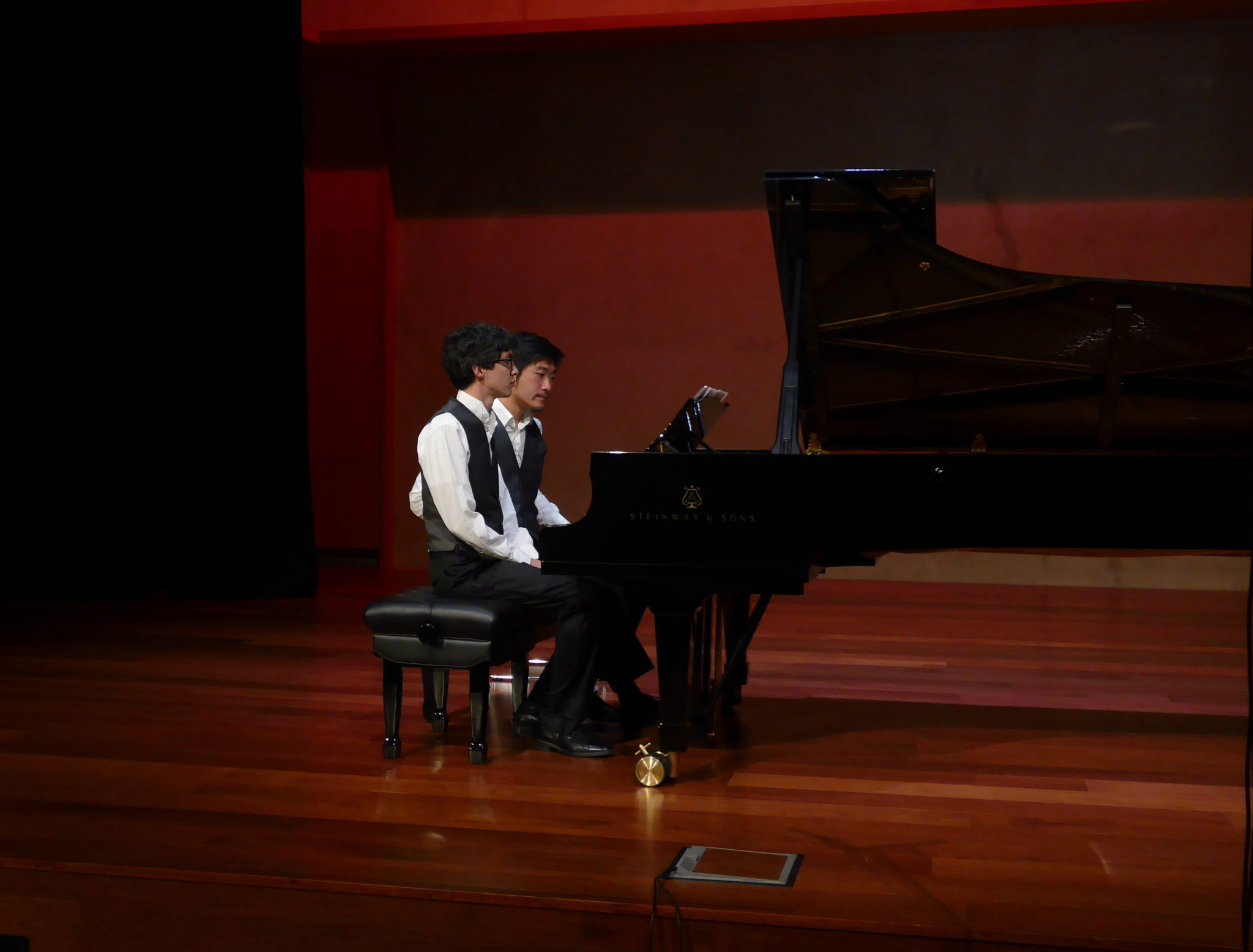
Christopher’s Classics
Piano Four-handsTony Chen Lin & Jun Bouterey-Ishido
The Piano, Christchurch – 2 November 2017Reviewed by Tony Ryan
The standing ovation at the end of this recital was affirmation of some very special music-making and certainly, for me, one of my top two highlights from an intensive year of concert, opera and recital-going. As it happens, my other musical high point from 2017 was also a concert in the Christopher’s Classics series; that one featuring Diedre Irons and string principals from the NZSO.
Each of these concerts included a major, if less well-known, work by Schubert. The Piano Quartet from Irons and co proved an exciting and captivating encounter because of a truly exceptional and virtuosic performance and, while Tony Chen Lin and Jun Bouterey-Ishido delivered similar excitement and virtuosity in other parts of their piano duet programme, their interpretation of Schubert’s Grand Duo Sonata was the one minor disappointment of the evening. It may not be one of Schubert’s finest pieces, but, played with less romantic indulgence than we heard last night, it can survive its more-than-forty-minute duration more effectively. Lovingly played as this sonata was, perhaps Schubert’s greatest piano duet masterpiece, the F Minor Fantasie, would have better suited these two musicians and would certainly have shortened what seemed like an overly long first half of the programme.
But that one negative aside, everything else was extraordinarily compelling. Each half of the programme began with pieces by the Hungarian composer György Kurtág. Here, his four-hand Jatekok (Games) miniatures were interspersed with his arrangements of Bach. The Jatekok pieces are full of humour, which was all the more effective for Chen Lin and Bouterey-Ishido’s deliberately overly intense presentation. In the opening Flowers piece, each player challenged the other to more excessive and expressive delivery of single notes, and as each encroached on the other’s half of the keyboard, a sense of feigned friendship disguising intense enmity, with Lang Lang-like emotive flourishes, had the audience laughing openly. This piece, like the others, can be approached in different ways and I’ve seen it done by a male-female duo where ‘he’ uses the need to access ‘her’ part of the piano as an excuse to put his arm around her. Each of these pieces was followed by one of Kurtág’s Bach transcriptions, and the sense of inner joy in the playing was simply breathtaking.
A second group of three pairings of Kurtág’s Jatekok and Bach pieces began the second half and, if “joy” was the dominant feeling of the first group, this second set conveyed a deeply poignant sense of wonder. The final Bach transcription, the Sonatina from the Actus Tragicus cantata, was exceptionally moving in a performance of restrained and beautifully phrased concentration.
But it was the Stravinsky and Ravel works at the end of the programme that evoked awe from the audience, with playing of truly exceptional control, virtuosity and expressive insight. Stravinsky’s The Rite of Spring is now a familiar and often performed orchestral showpiece, but if I feared missing its orchestral colours and spectacular effects, I need not have worried. This cracking duo brought every bar to colourful life with playing of astonishing assurance and variety. The performance made me hear details of textural complexity and melodic lyricism that usually take a back seat to exotic timbres and kaleidoscopic drama. I had anticipated a monochrome version of a work that depends on its orchestral garb, but it was more like hearing a new work with its own striking originality and merit.
If I seem to be overreaching the superlatives in describing the Stravinsky performance, Tony Chen Lin and Jun Bouterey-Ishido played Ravel’s La Valsewith such consummate technical and expressive mastery that words fail, leaving me to stand and cheer along with the rest of the large audience as the best response. Both pianists danced their way through this glittering and swirling masterpiece as if in a hypnotic trance akin to that of the sacrificial maiden at the end of The Rite of Spring. Delicacy of touch alternated with dazzling power as the piece spiralled towards its dizzying climax. It was almost as exhausting to watch as it must have been to play!
Maybe a bit of information about some of the music, especially the Kurtág, could have been included in the programme in preference to nearly a whole page about one of the players, but, hey, with a concert of this quality and individuality, I feel churlish complaining about anything.
You must be logged in to post a comment.